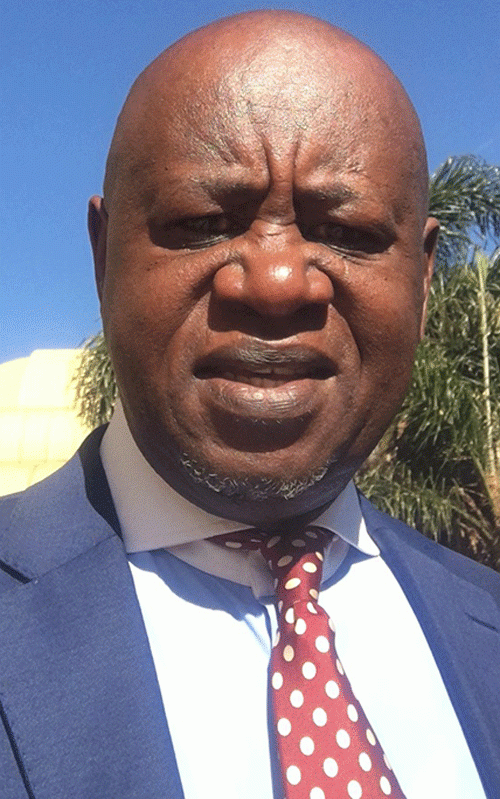
THERE is a lot of talk about building smart cities and it is important that we at least fully understand what it is all about. Making a city “smart” is emerging as a strategy to mitigate the problems generated by the urban population growth and rapid urbanisation. More than half of the World’s population now lives in urban areas and this shift from a primarily rural to a primarily urban population is projected to continue for the next couple of decades. It is estimated that more than 80% of global GDP is generated in cities and urbanisation, if managed well, can contribute to sustainable and inclusive growth. It achieves this by addressing inequalities, increasing productivity, and promoting job creation, social well-being, citizen participation, innovation, and emerging ideas. As such there is a need for a radical change in thinking about the way cities and human settlements are planned, developed, governed, and managed. In the case of Africa, urbanisation is progressing rapidly. The continent’s rate of urbanisation soared from 15% in 1960 to 40% in 2010, and is projected to reach 60% in 2050. It is expected that urban populations in Africa will triple in the next 50 years.
Cities, megacities, generate new kinds of complex problems such as difficulty in waste management, scarcity of resources, air pollution, overcrowding, human health concerns, traffic congestions, and inadequate, deteriorating, aging infrastructures and environmental degradation. Other problems are more social and organisational in nature and are associated with balancing at times conflicting interests of multiple and diverse stakeholders, high levels of interdependence, competing objectives and values, social and political complexity, among others. Unless all these are managed well chaos can erupt which in turn can negatively affect the quality of lives of urban dwellers and increase urban poverty.
What is a smart city? There are many definitions out there but for me an appropriate one seems to define a smart city as a city which monitors, manages and integrates conditions of all of its critical infrastructures, including roads, bridges, tunnels, rails, subways, airports, seaports, communications, water, power, even major buildings, can better optimise its resources, plan its preventive maintenance activities, and monitor security aspects while maximising the delivery of essential services to majority of its citizens.
Leonard Nuyambo, a young entrepreneur who is a smart cities expert has been educating me on this concept and defines a smart city as follows “Imagine a city being the human body. As a human body has systems, so do cities and the systems function under the control of the brain and its associated systems. For a while our cities have been functioning without a brain and in a smart city, each system, from mobility/transportation, housing, and urban green spaces and so on, can be connected through technology and we can create a brain that is able to respond through the data that is fed into it by remote sensors.” Smart cities have become the choice in cities in developing countries. These countries use smart cities as an effort to improve public services and to regulate development. The smart city is developed into an information technology-based city. Others like to call it a “cyber city”.
The Transform Africa Summit which was held in Kigali, Rwanda in October 2013 culminated in the adoption of the Smart Africa Manifesto adopted by seven African heads of State. These country heads committed to providing leadership in accelerating development through ICT. Subsequently, the Smart Africa Manifesto was endorsed by the heads of States and governments at the 22nd Ordinary Session of the Assembly of the AU in January 2014 in Addis Ababa.
To operationalise the manifesto, the Smart Africa Alliance was created. This is a coalition of African States, development partners and private sector members. The Alliance identified flagship projects led by member States to kick off the implementation of the manifesto. One of these projects is smart cities led by the government of Rwanda which has developed a blueprint that cities across the continent can adopt as they embark on their own smart city initiatives. The blueprint is considered only the first step towards a structured smart sustainable city development in Africa.
Smart Sustainable Cities: A Blueprint for Africa deals with the key issues that Africa is facing in transforming its cities into smart cities. It is estimated that half of Africans will be living in cities by 2030 and “Smart Africa” acknowledges that urbanisation is a critical driver of economic development and social mobility and that it is also catalyst for technological progress.
It is expected that urban populations in Africa will triple in the next 50 years, transforming the profile of the continent which will challenge policy makers to harness the urbanisation phenomenon which in itself comes with complex problems which require a new paradigm. The key considerations which are included in the “Smart Africa” blueprint which Africa must deal with include:
- Pathways for repurposing resources are long overdue in developing countries
- Can smart cities become a reality in Africa?
Keep Reading
- Need for mobility and access to urban service. One of the effects of rapid urbanisation is traffic congestion which has an impact on the economy of cities and on accessibility of the community to essential services.
- Increasing power costs and instability of grid. Globally, 75% of the world’s energy is consumed in cities. Rapid urbanisation increases per capita energy consumption putting pressure on the existing energy system.
- Access to clean water and sanitation. Both rural and urban Africans have challenges in accessing clean water supply. The WHO stated that, in 2020, 40% of people in sub-Saharan Africa are without access to reliable and improved water sources.
- Public health and safety. With rapid urbanisation comes challenges of unemployment, congestion and inevitably rising crime and insecurity.
- Increased capacity. The 21st century calls for new skills and capacity to enable countries, cities and their citizens to compete in the global economic market, as well as utilize and maintain digital transformation - essential for promoting smart cities.
Smart Sustainable Cities are about creating a synergy between technology, infrastructure, policy, and strategic planning. They are also about the relevant policies and ecosystems that make a city habitable for all citizens. This includes: Utilities management (energy, gas, water, waste.); Infrastructure (buildings, parks, and playgrounds); IT Security and Privacy; Safety, ease of movement and right to access the services; and public administration where local government services should be open to all citizens.
There is no doubt that developing a smart city requires long-term infrastructure investments. Most governments and cities do not have the resources to fund and run smart city deployments independently. Africa will have to be creative in raising the required long term capital in partnership with the private sector and development partners.
From the above it is clear that creating smart cities is a fundamental transformation of mind sets and will require a new leadership paradigm underpinned by effective allocation and management of resources, something that Africa is failing to do but nothing is impossible and the future will definitely be significantly different.
Vince Musewe is an independent economist and you can contact him on [email protected]
Vince Musewe is an independent economist and may be contacted on [email protected]. He writes here in his personal capacity.











